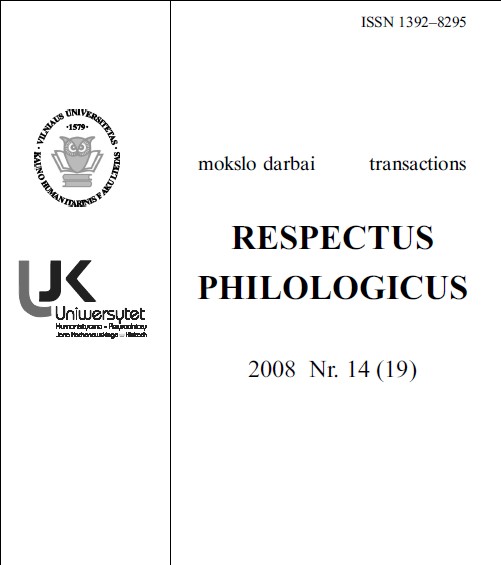ODCHYLENIA OD NORMY SŁOWOTWÓRCZEJ W WYPOWIEDZIACH CUDZOZIEMCÓW
DEVIATIONS FROM WORD-FORMATION STANDARDS IN FOREIGNERS’ SPEECH
Author(s): Aneta Barbara IwanSubject(s): Foreign languages learning, Morphology, Western Slavic Languages
Published by: Vilniaus Universiteto Leidykla
Keywords: language standard; word-formation; language error;
Summary/Abstract: The paper deals with characteristics of morphological errors made by learners of Polish as a foreign language. The material of this study was based on recorded spoken texts transcribed according to Polish orthographic rules. The material was sampled with questionnaires. Each speaker received the same set of questions. Various topics were tackled. The term language error applies to quite a number of various phenomena, although they have one feature in common – namely, unconscious deviations from the current language standards. Accordingly, such innovations that cannot be justified in functional terms as they do not facilitate communication, do not convey any new meaning or put across sender’s emotions in a new or different way, etc. Morphological errors, in turn, include: (1) the use of a word formation incompatible with Polish morphological models, for instance specgrupa (instead of the correct grupa specjalna); (2) the usage of a wrong formative, for instance gùupoúã (instead of gùupota); (3) the choice of an incorrect derivational base, for instance eurosejm (instead of the correct europarlament). A set of rules used to assess derivational correctness is based on the following criteria: sufficiency, systematicity, conventionality, aesthetics and pattern quantity.
Journal: Respectus Philologicus
- Issue Year: 2008
- Issue No: 14 (19)
- Page Range: 136-141
- Page Count: 6
- Language: Polish

